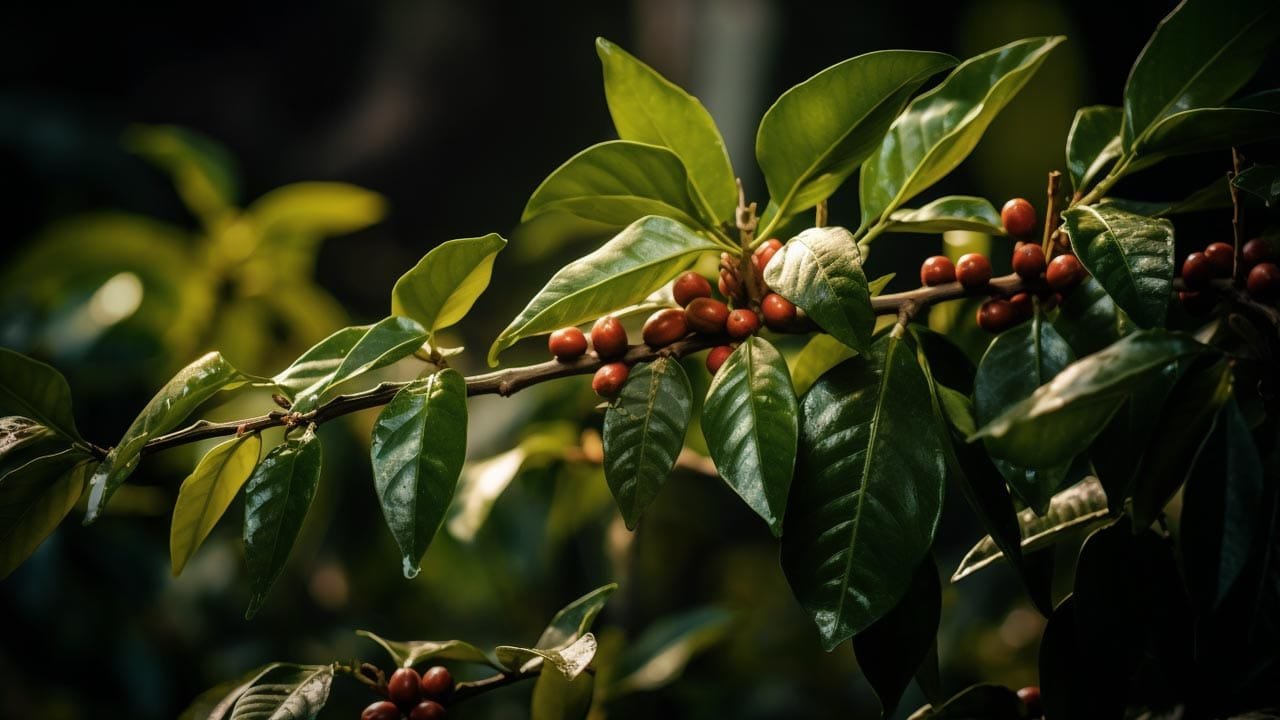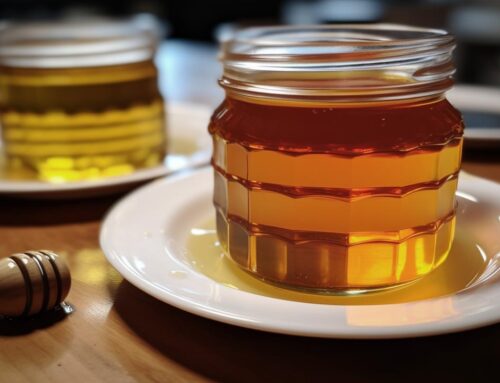Yaupon: The Hidden Caffeine
You might be familiar with the typical sources of your daily caffeine buzz – the classic coffee, the traditional green tea, or perhaps the trendy matcha. But have you ever heard of Yaupon? If not, you’re in for an enlightening sip into America’s hidden caffeine gem.
Key Takeaways
- Discover America’s only native caffeine source: Yaupon.
- Explore its rich cultural history and promising health benefits.
- Uncover why Yaupon is more than just a tea; it’s a part of American heritage.
Table of Contents
- Yaupon: A Unique American Beverage
- The Cultural and Historical Significance of Yaupon
- Yaupon: The Hidden Caffeine Used Off-Grid
- Frequently Asked Questions
- Conclusion
Yaupon: A Unique American Beverage
In the vast world of caffeinated beverages, yaupon (Ilex vomitoria) stands out as an extraordinary and unique American beverage. It is the only native source of caffeine in the United States, making it a botanical treasure that has been hidden in plain sight for centuries.

When compared to more well-known caffeine sources like coffee and imported teas, yaupon may not boast the same caffeine content, but it holds its own with a respectable amount of this natural stimulant. The caffeine content in yaupon is akin to that of traditional teas, such as black and green tea. However, it’s the history and cultural significance of yaupon that truly set it apart.
Native American Use: Long before European settlers arrived on American shores, Native American tribes recognized the value of yaupon as a beverage. Among them, the Yaupon Holly tribe was particularly known for its extensive use of this native plant. They brewed yaupon into a drink that held cultural and ceremonial significance. This infusion served as a social and spiritual elixir, fostering communal bonds and facilitating discussions among tribe members.
Early European Settlers: When European settlers began to explore and settle in North America, they encountered yaupon and adopted its use. They recognized its potential as a caffeine source and incorporated it into their daily routines. Yaupon’s early European history is a testament to its adaptability and appeal to diverse cultures.
The versatility of yaupon allowed it to become a cherished beverage among various communities. Its mild stimulating effects, combined with its unique flavor profile, made it an attractive choice for those seeking an alternative to coffee or imported teas.
Today, the resurgence of interest in yaupon represents a rediscovery of America’s own caffeine source. While it may not have achieved the global recognition of coffee or the international acclaim of certain teas, its value lies in its roots, firmly planted in American soil.
As we journey further into the history, cultural significance, taste profile, and health benefits of yaupon, you’ll come to appreciate this remarkable plant as more than just a caffeine source; it’s a living piece of American heritage and an embodiment of sustainable, locally-sourced traditions. Yaupon is not merely a beverage; it’s a story waiting to be told and tasted.
The Cultural and Historical Significance of Yaupon
Beyond its identity as a caffeine source, yaupon holds a profound and multifaceted cultural and historical significance in the annals of American heritage. Its journey through time is marked by both reverence and misunderstanding, making it a captivating chapter in the story of indigenous plants and their place in society.
Native American Heritage: Yaupon’s cultural roots run deep in Native American history. Several tribes, including the Yaupon Holly tribe, recognized its intrinsic value as a beverage and integrated it into their way of life. The infusion of yaupon leaves wasn’t merely a drink; it was a ritual that connected individuals with their surroundings and each other.
For many Native American tribes, the act of preparing and sharing yaupon tea held a spiritual significance. It was used in communal gatherings, tribal meetings, and ceremonies. The communal act of brewing and sipping yaupon tea fostered bonds and facilitated communication among tribe members. The plant was considered a gift from the land, a symbol of sustenance, and a conduit for spiritual connection.
The Enigmatic Scientific Name: The cultural and historical significance of yaupon is somewhat overshadowed by its perplexing scientific name, Ilex vomitoria. Early European explorers bestowed this name upon the plant due to a misunderstanding of its use by Native Americans. They mistakenly believed that yaupon induced vomiting during certain rituals, leading to this misnomer.
The name, however, does a disservice to the rich cultural heritage of yaupon. Native Americans used yaupon in moderation and with reverence, contrary to the misconception implied by its scientific name. Despite its inaccuracies, this name continues to linger in botanical references, a reminder of the misunderstandings that have shaped our understanding of indigenous plants.
Historical Export and Decline: Yaupon’s historical significance extends beyond Native American tribes. Early European settlers in America recognized its potential and began exporting it to Europe. However, in Europe, yaupon was similarly misunderstood, often viewed as a curiosity rather than a valuable beverage. This misunderstanding, coupled with the association with vomiting, led to its decline in popularity both in the United States and abroad.
Yaupon: The Hidden Caffeine Used Off-Grid
- Sustainable Caffeine Source: Off-grid living often emphasizes sustainability and self-sufficiency. Yaupon is a caffeine source that can be cultivated sustainably in many off-grid settings. It grows well in various climates and requires minimal maintenance. Off-grid enthusiasts can consider growing yaupon as a renewable source of caffeine.
- Local Sourcing: Off-grid living often involves reducing reliance on external resources. Yaupon is a native plant in North America, making it an excellent choice for off-grid communities looking to source their own caffeine locally, without the need for long-distance transportation.
- Cultural and Historical Connection: Off-grid living can be an opportunity to reconnect with nature and heritage. Yaupon’s rich history, especially its use by Native American tribes, provides a cultural and historical connection to the land. Incorporating yaupon into off-grid practices can be a way to honor and learn from indigenous traditions.
- Health Benefits: Yaupon’s health benefits, such as its antioxidants and immune-boosting properties, can be especially valuable for off-grid individuals who may not have easy access to healthcare facilities. A natural source of energy like yaupon can be beneficial for maintaining good health in remote locations.
- Brewing Methods: The article outlines both traditional and modern methods of brewing yaupon. Off-grid living often involves self-reliance and the ability to make the most of available resources. Learning how to brew yaupon using traditional methods can be a valuable skill for off-grid enthusiasts who may have limited access to modern conveniences.
- Entrepreneurial Opportunities: For those in off-grid communities looking to generate income, cultivating and selling yaupon could be a small business opportunity. The resurgence of yaupon in the modern market shows that there is a growing interest in this unique beverage, and off-grid entrepreneurs could tap into this niche market.
- Eco-Friendly Choices: Off-grid living often promotes eco-friendly practices. Choosing yaupon as a caffeine source aligns with this philosophy, as it is a sustainable and locally-sourced option, reducing the carbon footprint associated with caffeine consumption.
Overall, yaupon can be integrated into off-grid living as a sustainable, locally-sourced, and culturally rich beverage option, providing both practical benefits and a deeper connection to the land and history.
Frequently Asked Questions
Conclusion
As the awareness of yaupon continues to grow, it holds the promise of becoming a sustainable, locally-sourced caffeine alternative that not only nourishes the body but also reconnects us with our American heritage. Its rich history, cultural significance, and potential health benefits make it a beverage worth exploring for tea enthusiasts and health-conscious individuals alike. Yaupon’s resurgence in the modern market is a testament to our evolving appreciation of indigenous plants and the desire for unique, eco-friendly beverages.







Leave A Comment